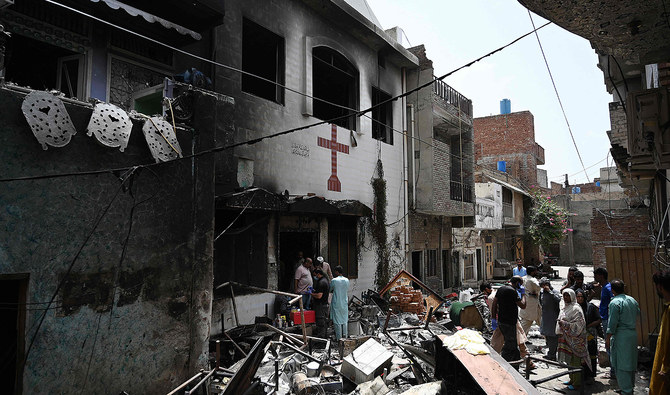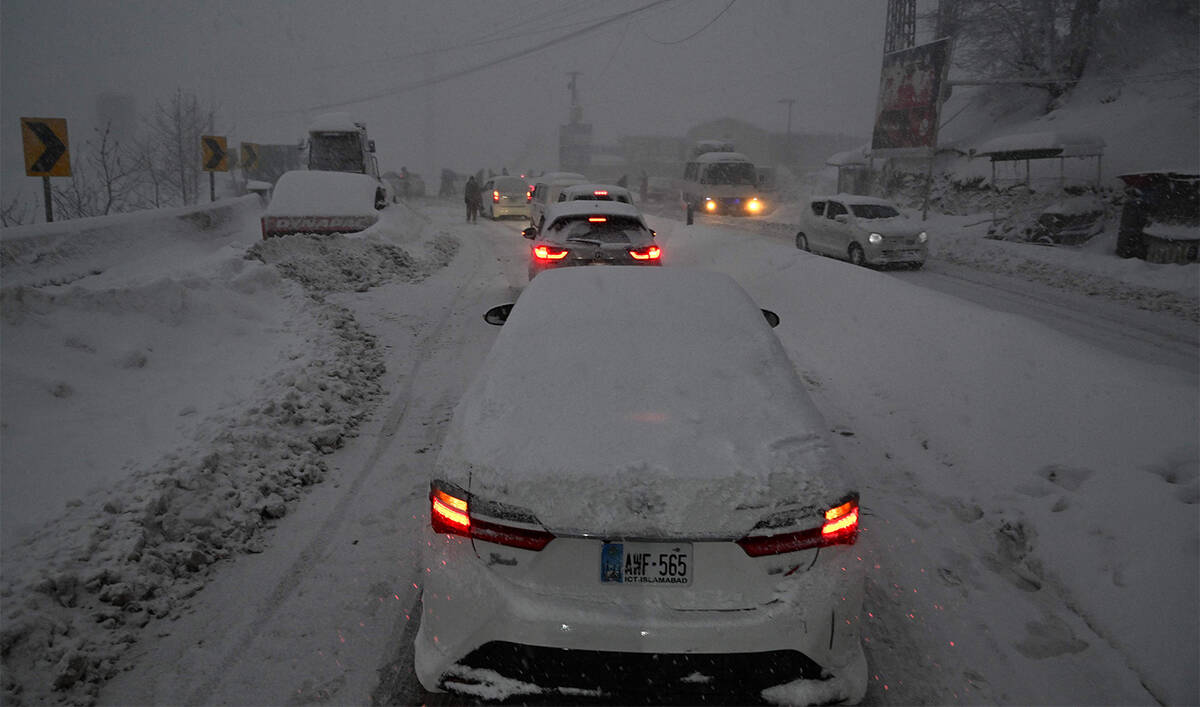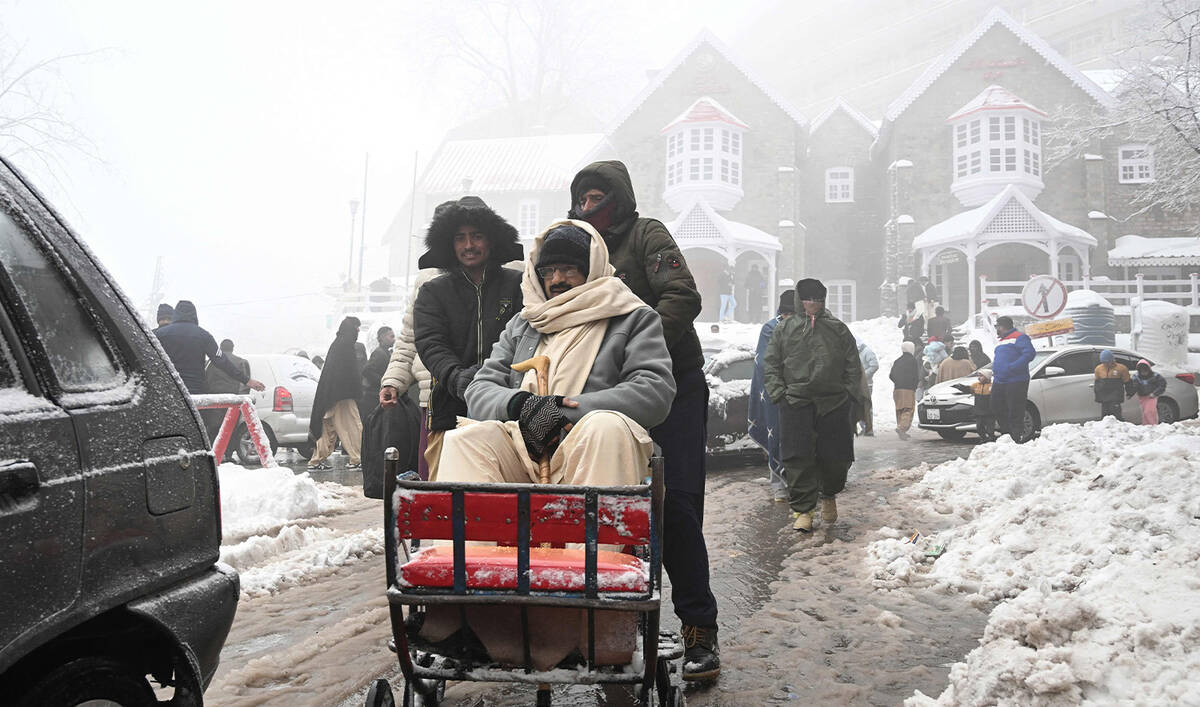ISLAMABAD: Islamabad Police announced on Thursday the formation of a “protection unit” to ensure the safety of minority places of worship and communities, a day after a Muslim mob torched several churches and scores of houses after two men living there were accused of desecrating the Qur’an.
The incident took place in Jaranwala town of Pakistan’s industrial city of Faisalabad on Wednesday. Residents and community leaders have told media the rampage continued for 10 hours without any intervention from security forces, but police deny the accusations. On Thursday, paramilitary troops were deployed in the town to aid the police, which said it had filed cases against more than 600 people and arrested over a hundred for involvement in the violence.
“70 jawans have been posted in a ‘Minority Protection Unit’,” Islamabad Police announced on the online platform X, saying the body had been recommended by the National Minorities Commission.
Under the new unit, district police officers (DPOs) would be responsible for the protection of minority places of worship and communities in their areas and would strengthen liaison with minority committees at the divisional level. The Minority Protection Unit would work under the Senior Superintendent of Police (Operations).
A spokesperson for the government in the Punjab where the violence took place called it a “well-thought-out plan to disrupt peace.”
Wednesday’s incident has drawn widespread condemnation in Pakistan and beyond, with Caretaker Prime Minister Anwaar-ul-Haq Kakar vowing “stern action.”
“I am gutted by the visuals coming out of Jaranwala, Faisalabad,” Kakar wrote on the X platform.

National and international rights groups also condemned the incident, calling on Pakistani authorities to take swift action and ensure the protection of minorities.
“The Pakistani authorities must urgently ensure the protection of the minority Christian community in Jaranwala is in accordance with their needs and wishes and that those found responsible for the arson and attacks on Churches and homes are held accountable,” Amnesty International said in a statement.
The Human Rights Commission of Pakistan (HRCP) said the frequency and scale of such attacks, which are “systematic, violent, and often uncontainable,” appeared to have increased in recent years.
“Not only has the state failed to protect its religious minorities, but it has also allowed the far right to permeate and fester within society and politics,” it said.
Pakistani bishop Azad Marshall, in the neighboring city of Lahore, said the Christian community was “deeply pained and distressed” by the events.
“We cry out for justice and action from law enforcement and those who dispense justice and the safety of all citizens to intervene immediately and assure us that our lives are valuable in our own homeland.”
Washington on Wednesday also voiced alarm at the latest attacks and urged Pakistan to launch an investigation.
Blasphemy is a sensitive issue in Muslim-majority Pakistan, where anyone deemed to have insulted Islam or Islamic figures can face the death penalty.
Christians, who make up around two percent of the population, occupy one of the lowest rungs in Pakistani society and are frequently targeted with spurious and unfounded blasphemy allegations that can be used to settle personal vendettas.
















